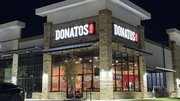Article
Survey: Restaurants get raw deal with Groupon

September 28, 2010
A recent study from the Jesse H. Jones Graduate School of Business at Rice University concluded that restaurant businesses fare the worst of all service-oriented businesses that run Groupon deals.
Utpal Dholakia is the author of the study and is associate professor of marketing at the Jones School. He conducted surveys with 150 businesses spanning 19 U.S. cities and 13 product categories that ran and completed Groupon promotions between June 2009 and August 2010.
The results?
Groupon promotions were profitable for 66 percent of the businesses surveyed; however, more than 40 percent of the respondents indicated they would not run such a promotion again. Among the service businesses (restaurants, educational services, tourism and salon and spa), restaurants fared the worst; salons and spas were the most successful.
For the unfamiliar, Groupon is a social promotion site that features a daily deal for each city in which it operates and offers consumers a significant discount for a local good, service or event. The discount is valid only if a minimum number of consumers purchase the deal.
The company has gotten a lot of press since its 2008 debut – lately, for sheer market penetration: At the end of August, Forbes ran a story calling Groupon “the fastest-growing web company in history.”
But how good for business the site’s promotions are is a point of debate. The Jesse H. Jones study provided evidence that "satisfied employees" is the most important factor for the Groupon promotion to work successfully for a business. If employees remain satisfied through the promotion, the likelihood of its profitability is significantly higher. The percentage of discounts offered and the number of Groupons sold did not predict the deal's profitability. It also did not offer a percentage of Groupon users who purchased beyond the Groupon’s value or bought the item again at full price.
"Because the Groupon customer base is made up of deal-seekers and bargain shoppers, they might not tip as well as an average customer or be willing to purchase beyond the deal," Dholakia said. "So employees need to be prepared for this type of customer and the sheer volume of customers that might come through."
Other restaurant-relevant findings of the survey included:
- Businesses with unprofitable promotions reported lower rates of spending by Groupon users beyond the Groupon's face value and lower rates of return to the business again at full price.
- Respondents indicated they had largely negative perceptions of Groupon's competitors.
"I think these findings show that social promotion companies need to better balance consumer appeal with positive outcomes for the small businesses offering them," Dholakia said. "Right now, these deals are tilted too far in consumers’ favor."
Dholakia outlined some strategies for success that included using promotions for building relationships, such as the offering of smaller discounts for repeat visits. "Instead of offering $60 worth of food for $30, parcel it out to offer $20 worth of food for $10 over the customer's next three visits," Dholakia said. He also suggested crafting deals to push unpopular items.










